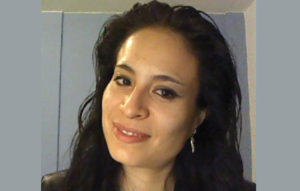
The Commission on the Anthropology of Pandemics evolved from the Commission on the Anthropology of HIV/AIDS. Its aim is to focus on other emerging pandemics, such as dengue fever, as well as on “social pandemics”, such as the global spread of femicide. Although HIV and COVID-19 are transmitted in different ways, certain similarities between them can be observed, especially when considering barriers to prevention behavior, the unsuccessful Behavioral Change Communications (BCC) messages in many countries, and the stigma and discrimination they cause. The Commission on the Anthropology of Pandemics is interdisciplinary and includes public health professionals. It encourages its members to explore and enhance our understanding of cultural perceptions and beliefs related to pandemics, to engage in risk assessment among populations in different contexts, and to participate in interdisciplinary research focusing on the prevention and control of HIV/AIDS, COVID-19, and other evolving pandemics. The Commission is open to professional collaborations in areas such as public health, education, social communication, and development.
The COVID-19 pandemic impacted all spheres of life due to forced lockdowns, border closures, loss of livelihood, the ability to support one’s family, increased domestic violence and mental health challenges, governance issues, limited access to health services, and more. Since its inception, our commission members have engaged in research on these issues, including a joint project on perceptions towards the COVID-19 vaccine. In addition, we have held seminars, webinars and organized panels for international conferences on a myriad of issues related to pandemics.
The Commission also focuses on applied and action anthropology, providing anthropological insight in the development of culturally and gender-sensitive strategies, the creation of information and education programs, as well as behavioral change interventions. We aim to engage communities while also leveraging social media and mobile technologies for the care and prevention of HIV/AIDS, COVID-19, dengue fever, and other emerging pandemics.

Dr. Anita Nudelman
Chair of the Commission
Anita is an applied medical anthropologist, with expertise in innovative qualitative research methods. She obtained her PhD. in Educational and Health Anthropology at Eotvos Lorand University, Budapest, Hungary and her M.A. in Anthropological Sciences at the National University of Buenos Aires, Argentina.
She lectures at the Recanati School for Community Health Professionals, Faculty of Health Sciences, Ben Gurion University in Israel, preparing Global Health students for medical practice in different contexts, and has worked extensively on health issues among adolescents, immigrants and cultural minorities.
A long-term professional collaboration initiated with colleagues in Africa, focused on comprehensive culture and gender transformative sexuality education (including HIV and GBV prevention), was based on an interactive model developed in Israel. It included project development, training and mentoring of young people and community leaders, such as SHIP -Sexual Health Improvement Project (Population Secretariat of Uganda), and SLYCHA (Sierra Leone Youth Coalition on HIV and AIDS).
As an international consultant, Anita led participatory Rapid Assessment Processes exploring culture and gender barriers to PMTCT in Cameroon, Nigeria, DRC, Ethiopia, Uganda and India (UNAIDS); and operational research in the Gambia (Action Aid/the Global Fund) to develop a new National Strategy for Information, Education, Communication/Behaviour Change Communication (IEC/BCC) for HIV/AIDS prevention.
She was on Management Committee of COST IS 1206: “Femicide across Europe”- European Union Cooperation in Science and Technology Action (2014-2018) and is a member of the Israeli Observatory on Femicide.
A long-time member of IUAES, she serves as Chair of Commission on Anthropology of Pandemics (2021), Deputy Head of the Council of Commissions (CoC), member of the IUAES EC (2023-2027) and member of the WAU Steering Committee. She coordinates a program of social media interns, who enhance the visibility of the IUAES Commissions’ activities.
Anita is a member of various professional associations, such as the PAAA – Pan African Association of Anthropologists, having participated in numerous working groups, conferences, and webinars and written book chapters, articles, and research reports.
 Dr. María Guadalupe Ramírez Rojas
Dr. María Guadalupe Ramírez Rojas
Co-Chair of the Commission
She has been a researcher for Mexico affiliated with the Center for Research and Higher Studies in Social Anthropology (CIESAS), Southeast Unit, since 2019. She is currently a full professor in graduate-level programs and Coordinator of the Specialization Track in Socio-environmental Processes and Health within the PhD program in Social Anthropology.
She collaborates on the project “Health of Indigenous Peoples in Mexico, 2010–2025: From Neglected Diseases to Emerging Ones. A Multidisciplinary Approach,” and serves as Chair of the CIESAS Subcommittee on Ethics and Health Research.
She is a Candidate for Mexico’s National System of Researchers (SNI) and Co-Chair of the Commission on the Anthropology of Pandemics of the International Union of Anthropological and Ethnological Sciences (IUAES). Dr. Ramírez Rojas has worked as a consultant for various national and international organizations and has over 15 years of experience in research. She was also an associate researcher at the Maternal Mortality Observatory in Mexico (2011–2018).
Her research focuses on the field of medical anthropology, with an emphasis on the analysis of pandemics, access to healthcare systems, maternal health, and health governance.
 Milena Geisa dos Santos Martins
Milena Geisa dos Santos Martins
Social Media Manager of the Commission
Milena Geisa dos Santos Martins is a PhD candidate from Federal Rural University of Rio de Janeiro, and a research fellow at CAPES (Coordination for the Improvement of Higher Education Personnel). She is an anthropologist specializing in digital anthropology, with a particular focus on health technologies, human-technology interactions, and innovative research methodologies.
She is also Co-Chair and the Co-founder of the IUAES Commission on Fieldwork and Innovative Methodologies and Social Media Manager for the IUAES Commission on the Anthropology of Pandemics. Beyond the IUAES Digital Anthropology Commission, she is also a member of the Royal Anthropological Institute and of the European Association of Social Anthropologists.
She has extensive experience organizing and coordinating academic panels at international conferences, including IUAES World Congress 2023, the EASA Conference 2024, the WAU Congress 2024 and the WAU Congress 2025.
Her present research explores the intersections between mental health and digital technologies, critically analyzing how self-management health applications shape users’ experiences and perceptions of well-being. She is currently developing a theoretical study on mental health apps and neoliberalism, incorporating ethnographic data to examine user experiences, app development processes, and the broader socio-economic logic behind these platforms.
Beyond digital health, she investigates evangelical feminism and virtual activism, analyzing how religious and feminist discourses intersect in online spaces. Her work explores how digital platforms are used to challenge traditional gender roles, foster community, and negotiate tensions between faith and feminist ideals. Regarding this research, she has published articles indexed by Web of Science, and a book chapter will also soon be published by Taylor-Francis.
Committed to fostering interdisciplinary dialogues, she actively engages in discussions on methodological innovations in anthropology and the future of research in an increasingly technologized world.

Tatum Alexander
Social Media Intern of the Commission
Tatum Alexander is a second-year master’s Anthropology student, studying at the University of Cape Town. Her research focuses on how mothers think maternal mental disorders and domestic violence affect children and what they do to protect them if they can. Her interest in these issues stemmed not only from an interest in the effects of domestic violence and maternal health on women and children but also on the importance of considering issues such as stigma and how it gives rise to secrecy and silencing.
She is currently part of the social media internship for the IUAES program and part of the Commission on Anthropology of Pandemics. She enjoys spending time with animals and being surrounded by nature. She also enjoys learning about people’s lived experiences, as it allows her to be more understanding, empathetic, compassionate, and open-minded to other cultures, diversities, languages, and ways of living and seeing the world and environment.


